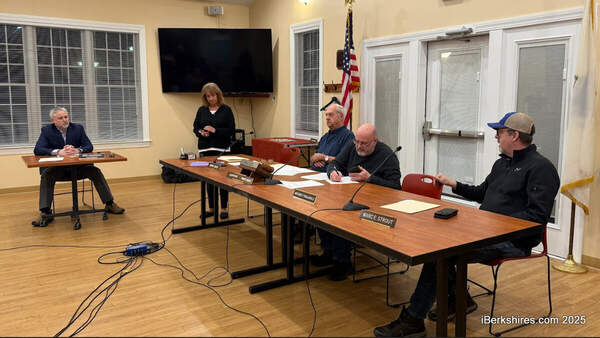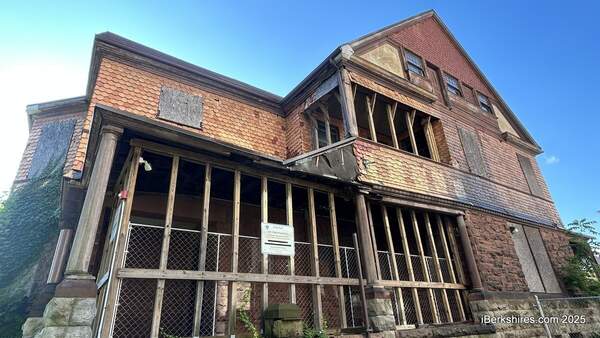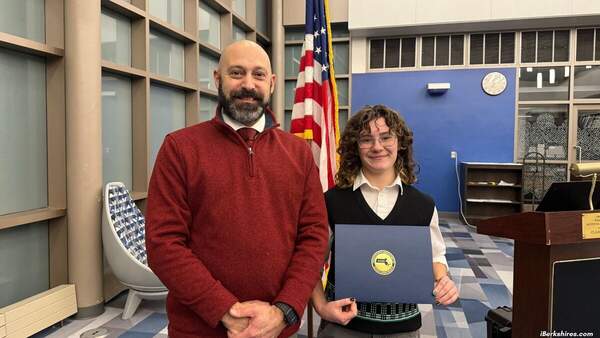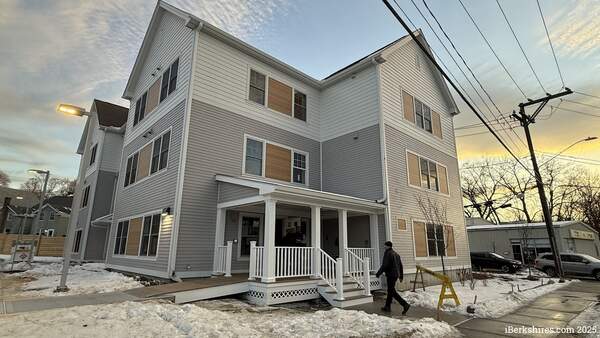Pittsfield Addiction Expert Weighs In On Opiate Treatment
PITTSFIELD, Mass — Controversy has raged since last week's announcement that a lawsuit was launched this summer against the city by Worcester-based nonprofit Spectrum Health Systems.Spectrum had applied in April for permission to open a comprehensive addiction treatment center, including methadone maintenance services, at 42 Summer St. In federal court papers, Spectrum said that in denying the permit, the city violated the Americans with Disabilities Act and the Dover Amendment, which exempts educational corporations from certain zoning restrictions.
Mayor James Ruberto and some city officials have voiced strong opposition to having such services in the downtown and that Spectrum's suit is an attempt to circumvent the city's standard permitting process. However, proponents of the proposed facility, including Dr. Stephen Kisiel, co-owner of the Summer Street location, claim that the mayor has been hostile toward opening the center from the outset, according to news reports.
Little or no comment has been made from officials on the difference between this new center and other addiction treatment services available downtown. While a representative of Spectrum Health Systems refused to comment on the current case, an interview with the founder of another downtown treatment center proved informative.
Dr. Omar Faruk, chairman of medicine at Mercy Hospital in Providence, R.I., and the president and medical director of the Experience Wellness Centers, which opened a location on North Street last year, took some time to offer his perspective on local opioid addiction treatment.
Faruk said that according to the Department of Health, death from opioid overdose in Massachusetts has risen 600 percent, well above the national increase of about 145 percent.
Faruk said he became passionate about addiction treatment after seeing the rise in overdose deaths in the previous decade, leading him to open Experience Wellness Centers.
"During the time of the Iraq War, we lost more than 3,500 residents to overdose death, and we lost 76 of our great soldiers [from Massachusetts] in that war to overdose. Nobody knows about them," Faruk said. "When we first came to Pittsfield there was a lot of social stigma and a lot of feedback; but I was particularly strong about it because someone had to do it. It's not just going to go away."
Faruk said that when he first opened his North Street treatment center there was "some concerns from various social groups" about it. But the process was somewhat different for him because his clinic does not offer methadone maintenance, only the opioid medication Suboxone. Under the Drug Addiction Treatment Act passed in 2000, his clinic did not require the same permissions from the state's Department of Public Health that a methadone provider must have. Under the 2000 law, addiction treatment and counseling, including prescription of Suboxone, can be provided as part of a regular practice by any board-certified physician who goes through a special training.
Since opening, Faruk said there has not been much resistance from the community. "Once or twice the police came in, to check on things, but they've been friendly," he said.
While he recused himself from commenting on the specific issue of Spectrum, he was emphatic in his opinion that Suboxone, which he called "the modern medicine," has a greater benefit-to-risk ratio than methadone.
"Methadone has protected a lot of people's lives over the years, but Suboxone is superior medicine," Faruk said. "For one thing, you don't have to go every day."
While methadone overdose is still a significant issue, the doctor said overdose deaths from Suboxone are "extremely rare."
According to the Substance Abuse and Mental Health Administration, methadone overdose has increased more than sevenfold since 1999, with more than 5,000 fatalities annually, accounting for nearly 25 percent of the total drug overdoses each year.
Faruk said government health agencies are, overall, in favor of increasing the availability of addiction treatment options.
"They're saying that we need to do something. I understand that the community might feel differently but these are their brothers, sisters, uncles, neighbors. These are the people we see suffering every day," he said.
Faruk emphasized that since his centers have opened, the response from both communities has been more positive than negative. He said both Springfield's Mayor Domenic J. Sarno and former Pittsfield Mayor Charles L. Smith have thanked him for his work.
While his clinic currently serves about 300 patients, and has seen as many as 600 since it opened a year ago, he believes the community is still "underserved in addiction treatment as well as overall mental health services."
On Tuesday, Federal Court Judge James O'Toole denied Spectrum's request to begin work at the proposed treatment center immediately, saying the nonprofit had not sufficiently shown that its claim against the city is likely to be successful and that it did not show proof that failure to open immediately would do irreparable damage to the business.















